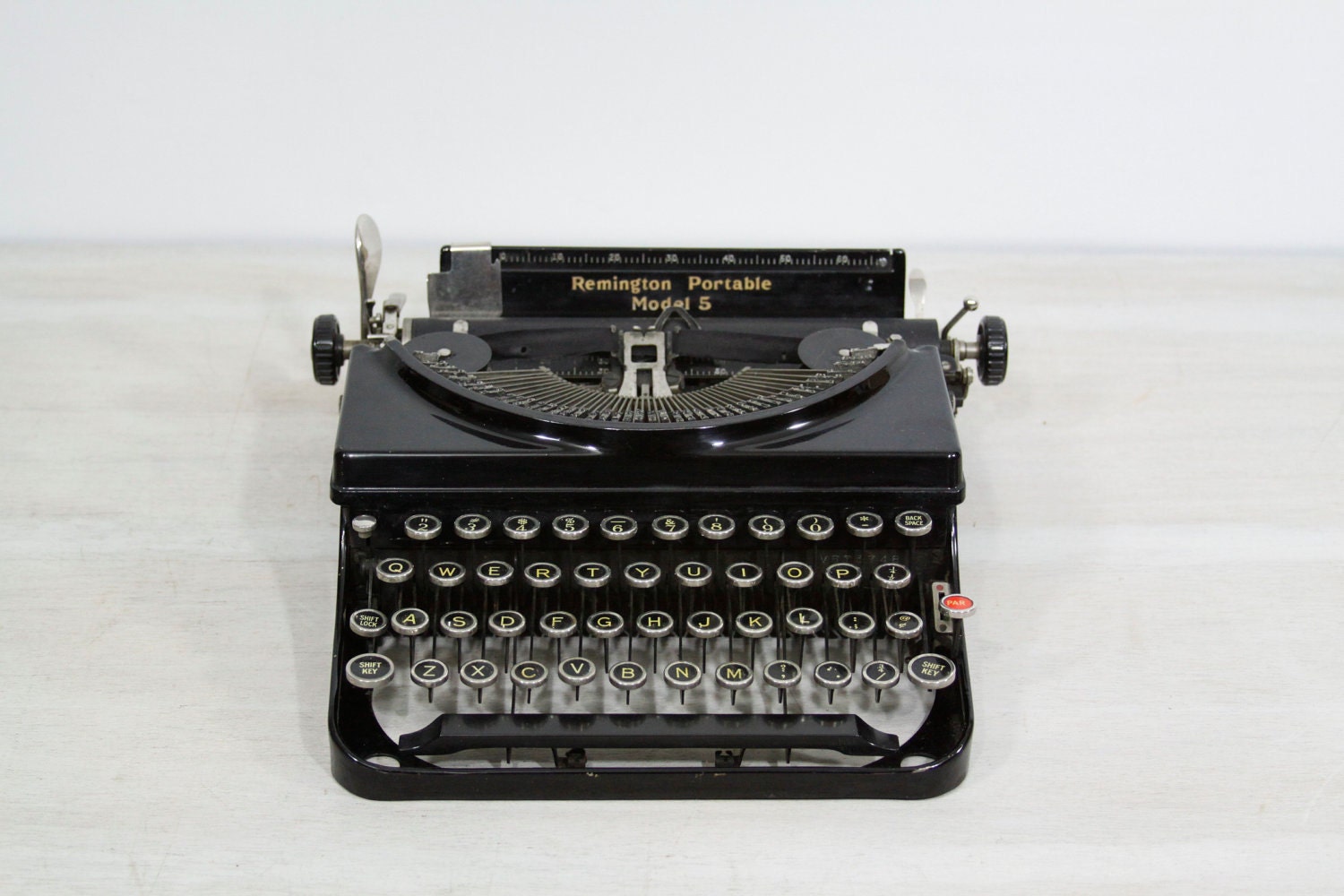I decided I want a typewriter. Something like this:
Within a few days of making this decision, I downloaded a chess app. Two actually.
Several days after that, it occurred to me that a singular motive had compelled both thoughts. You see, I find less and less time in my day for contemplation. We all spend so much time on
g-reader, or gmail or
tumblr, or twitter or facebook and constantly switching between all of them, I start to fear my brain is rewiring itself to think in sporadic bursts. I miss having thoughts that are...deep, or long. I'm referring to quiet moments of processing, rather than a constant flow of input. Even just daydreaming (
which makes you smarter) more often would be nice. At the same time, I have to reconcile this feeling with my ongoing love for the aforementioned "distractions".
Writing used to compel the brain to process more thoroughly. I heard Abraham Lincoln would only write as long as his quill held ink before he stopped to gather his thoughts again. But take writing this post for example, I keep stopping to add links or images and when I make a typo glaring red lines distract me from my thoughts. Typewriters are not as slow as writing with a quill, but they present a more contemplative process than does writing on a computer keyboard, where I find myself typing nearly as fast as I think. Don't get me wrong, this is useful for communicating and allows a stream of consciousness process, which is beneficial in many ways. But I'm looking for something that will force my brain to think harder about big ideas, rather than faster about many ideas.
I am not sure which came first, whether wanting a typewriter came from a conscious desire to think longer, or whether it made me realize that desire, but after I made the connection between typewriters and chess, the importance of finding more quiet processing time for my brain became clear to me. Both chess and typewriters impel the mind to think longer and deeper than most of the activities we are now involved in throughout the day. I have come to crave this.
When I start to fear how constant access to information and instant communication are changing my very thought process, I'm reminded about what I have read in:
which discusses how technology has shaped our thinking throughout history. Gleick relates how Plato, I think it was, feared the advent of the written word, because he thought it would cause people to lose their memory from disuse. Gleick also mentions that when the telegraph started to catch on, people were unable to comprehend, at first, that the news and weather they were hearing from other palaces was actually occurring at the same time that they were hearing it. Before telegraphs, it would take days or weeks for news to get from one place to another, such that people only thought of news as what had occurred in the past.
As the internet grows to consume much of our thought process and daily activity, a similar transformation is taking place, the effects of which we have not yet fully realized. This change is good. But with new technology comes new fears, particularly with breakthroughs in communication. When I start to think of the dangers of this change, I'm reminded of how people reacted to previous leaps in technology, and how those technologies have ultimately benefited society, and I am encouraged.
While I have faith in the benefits of new technologies and their effects on how we think, I still think it important to avail ourselves of the benefits of older technologies. It has been satisfying to play chess lately. I am starting to notice a difference in how I think, though still a subtle one. I look forward to finding a typewriter and discovering how it affects my thinking. When I do I'll write on it about my experience and...uh...scan and upload it?


